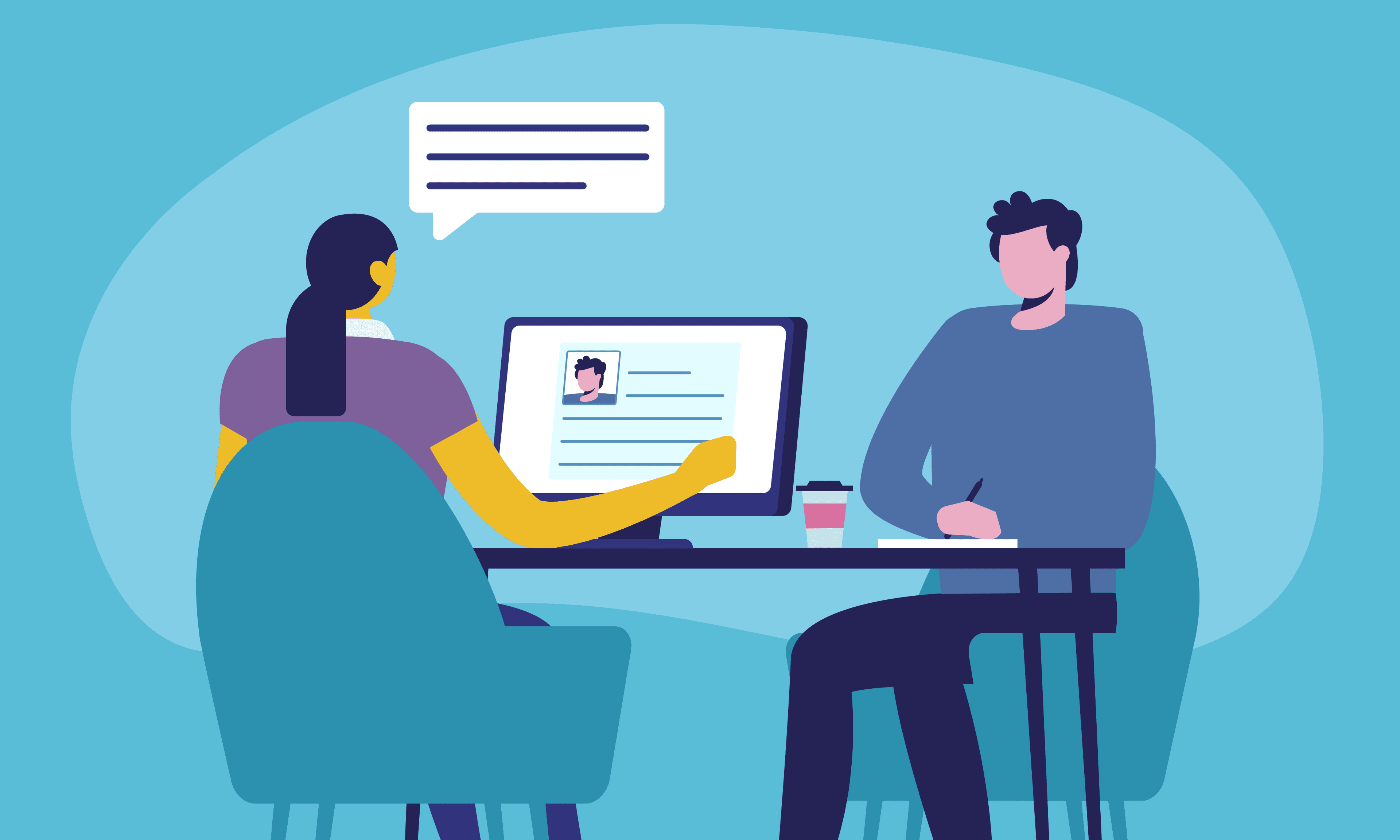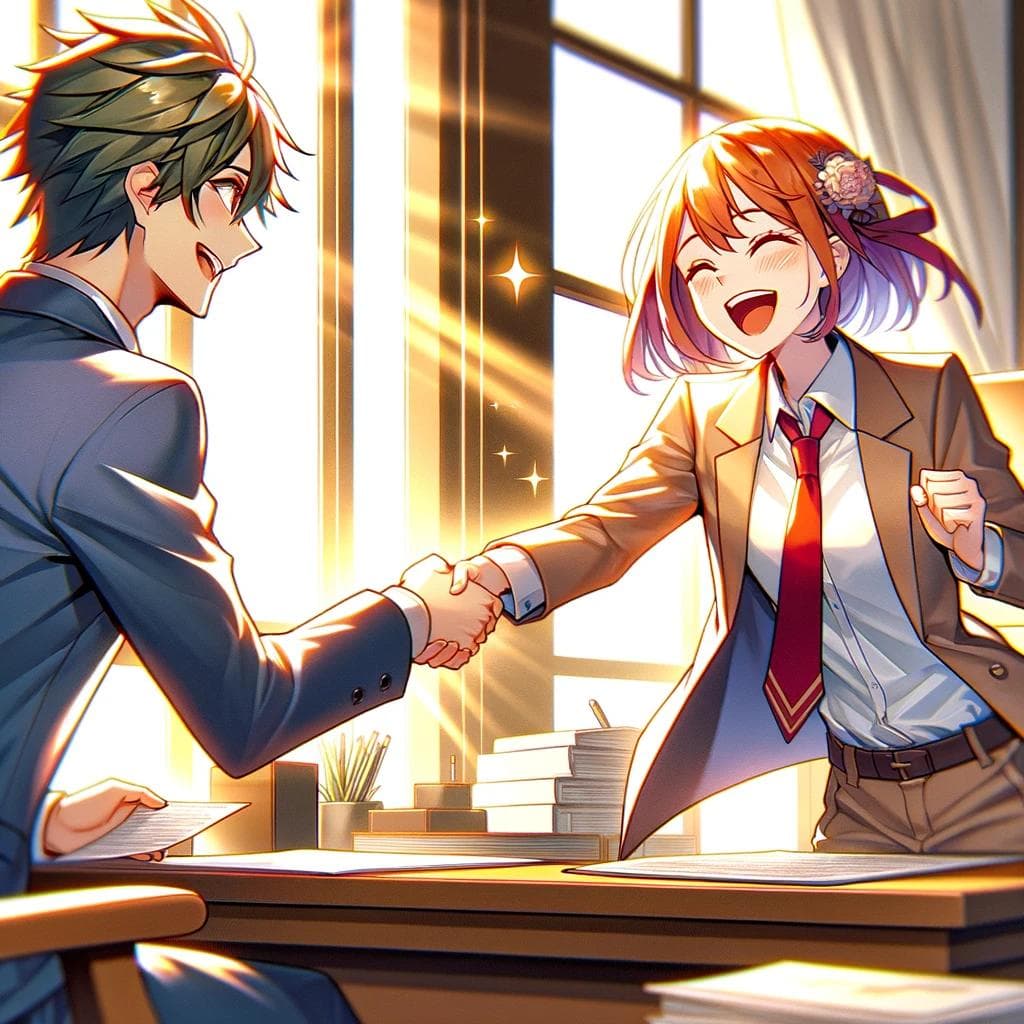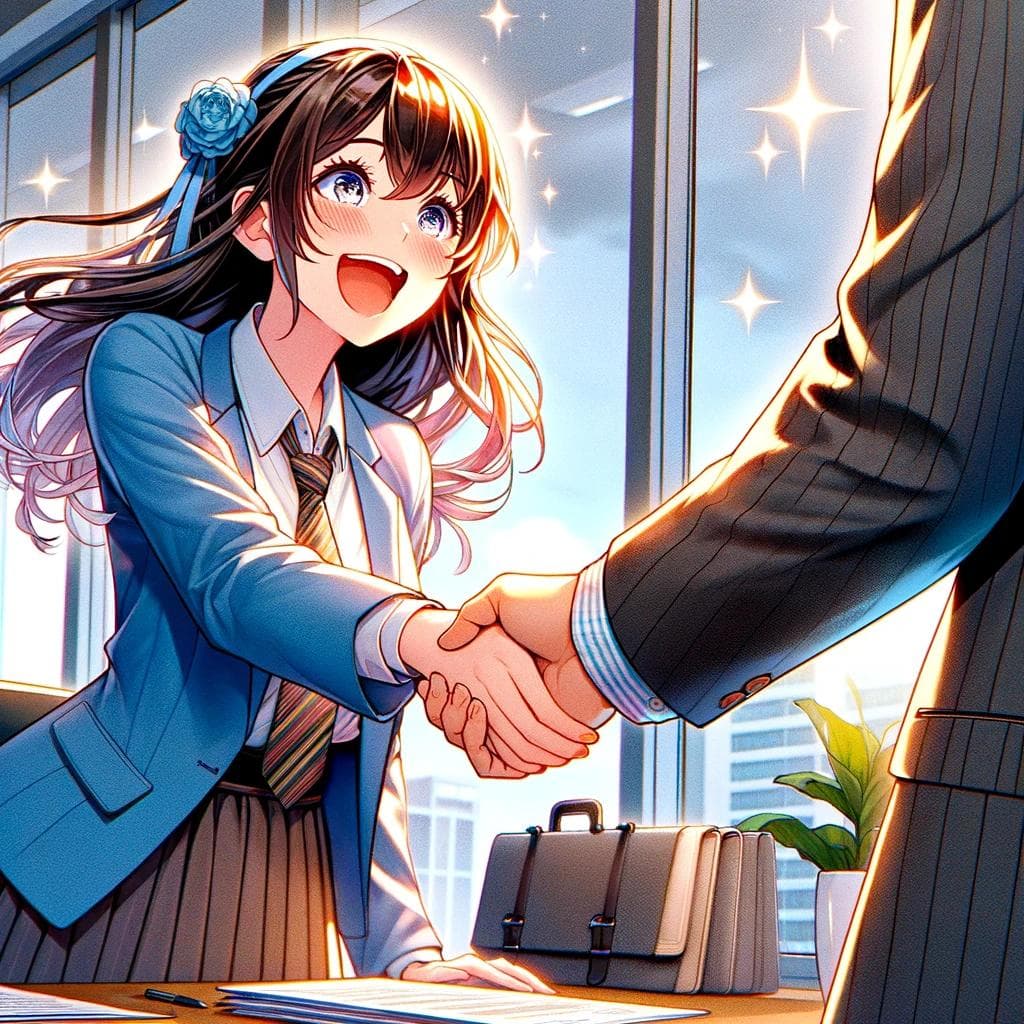The interview process could generally be divided into three parts including The pre-interview preparation, the interview process, and the post-interview follow-up.Many candidates think that just preparing well before and during the interview is enough, and then they sit and wait for the results, waiting for the employer to announce if they've passed or failed. While this is not wrong, it will make you passive and unable to make any difference compared to other candidates.After completing the interview, you will need to do some more tasks if you want to achieve the best results. So, the question lies here: what should be done after the interview to make the employer value the professionalism of the candidate more?You need to do something different, impress the employer with you, and make them want to give you an extra point, even the smallest one.In this blog post, we will cover how to follow up after an interview, including what you should do and shouldn't, as well as discuss the right and appropriate etiquette. Let's get started!
 Through this article, I hope you guys have already grasped the important points to note after participating in the interview process. As mentioned, the job search process does not just stop with careful preparation before and during the interview; it also relates to how you handle, respond, and act after the interview.Sending a thank you letter after an interview is not only a professional act but also shows your interest and gratitude for the time and opportunity the employer gave you. This will contribute to creating a good impression for you in the mind of the employer.Don't forget that continuing to look for a new job after the interview is also an important factor. Even if you feel like the interview went very well and are confident about your abilities, there are no guarantees until you receive official notification from the employer. By continuing your job search is to prepare for the worst possible scenario. You still have other backup plans. Focus on learning from each experience, whether success or failure. Every interview, no matter how it takes place, is an opportunity for you to learn and grow. Best of luck on your job search journey!
Through this article, I hope you guys have already grasped the important points to note after participating in the interview process. As mentioned, the job search process does not just stop with careful preparation before and during the interview; it also relates to how you handle, respond, and act after the interview.Sending a thank you letter after an interview is not only a professional act but also shows your interest and gratitude for the time and opportunity the employer gave you. This will contribute to creating a good impression for you in the mind of the employer.Don't forget that continuing to look for a new job after the interview is also an important factor. Even if you feel like the interview went very well and are confident about your abilities, there are no guarantees until you receive official notification from the employer. By continuing your job search is to prepare for the worst possible scenario. You still have other backup plans. Focus on learning from each experience, whether success or failure. Every interview, no matter how it takes place, is an opportunity for you to learn and grow. Best of luck on your job search journey!

What to Do After the Interview
1. Self-Reflection and Note-Taking Your Response
After the interview, spend your time reflecting on your previous conversation and answers with the hiring manager. No matter how smoothly the process went, it's important to reevaluate your own performance by asking yourself questions like, "What questions did they ask? How did you respond to those questions? Do you feel you answered them well? Etc..."Do this immediately after finishing it, when everything is still fresh in your mind. Write down the main points that were brought up during the interview. This is especially important in the first round of interviews because you may be asked similar questions in the following interview rounds. Instead of giving the same answer again, you can supplement your previous response and tell the interviewer that it is something you have thought about from the first round of interviews.Also, take notes on anything you wanted to say in the interview but did not have the opportunity to mention. Especially in the case of unsuccessful interviews, you should spend more time arranging information and the issues you encountered during the interview. Reevaluating these experiences can be extremely beneficial and can improve your performance in subsequent interviews.Applying the lessons learned from past interviews to future ones can enhance your outcomes. With perseverance, you'll soon secure your dream job and attain the position you've always wanted.2. Send a Personalized Thank-You Letter or Email
Expressing gratitude with a personalized thank you note or email following an interview can set you apart from other candidates. Taking the time to write a short message for each person to whom you’re writing shows that you value their time and thoughtfulness as well as that you’ve given thought to the specific things you want to say to themA thank you letter not only makes you look more professional but also shows employers your genuine desire for the job. As a result, employers may pay more attention to your application and increase your chances of being selected for the position you applied for. Just a simple act of thanking the interviewer can make a huge difference, right? It could be the difference between getting the job or not, so make sure to send your thank you notes in a timely manner."Remember, attitude is always more important than qualifications and skills. Often, your success in an interview largely depends on your progressive attitude and willingness to listen to the other party."The most appropriate time to send a thank you letter or email to the employer is within 24 hours after the interview, and it must be sent during working hours. This is a thoughtful gesture that illustrates your appreciation for the opportunity and keeps you in the interviewer's immediate recall. If your interview takes place late in the afternoon, reschedule your thank you email to the following morning so your name appears first in their inbox. Make sure to personalize the thank-you message specifically to the interviewer and the organization.The content of the email simply says thank you to the company for taking the time to interview and exchange information with you. Try to keep your message short and to the point, as well as show a genuine desire to contribute to your company. Formally, make sure you do not make any grammatical errors in these emails. The thank you letter should not exceed a few paragraphs, as the recruiter is really busy and they also have to deal with many candidates, so respect their time by keeping your message quality but concise.Some tips when writing a thank you letter or email
Error-free for Spelling: Write the right spelling of the recruiter's name, position, or company name – the recruiter’s evaluation will be based on that to assess your writing skill while proceeding with the upcoming work. Many recruiters rely their evaluations on this to evaluate your carefulness and professionalism in your future work.
Clear, concise content: The thank you letter should go straight to the main issue, present it briefly, not verbosely, and clearly avoid counterproductive rambling. In addition, Your professionalism is also shown through your words. Therefore, be careful and detailed, and use appropriate language to avoid unprofessional cases.
Write- Sincerely from the heart: In the thank you letter, express your genuine feelings and concentrate on these three main points: "1. Show appreciation for the recruitment opportunity; 2. Reaffirm your interest and passion for the position you've applied for; 3. Highlight how you can contribute to the company's development."
Appropriate Time: To keep the interviewer still has a fresh impression of you in mind, when sending a thank you email or letter, you should note to send it within 24 hours after the interview (the same day as the interview or the next day). If the interview takes place on Friday, send a thank you email on Friday afternoon or Monday morning. Don't send formal emails on weekends.
Reasonable length of the letter or email: Write a brief, clear thank-you with all the information you need to convey in about half an A4 page. Thank the opportunity, remind your interest, and remember to refer to what you discussed in the interview.
3. Requesting Feedback
If one day you receive an email or a call rejecting your application, seize this opportunity to ask for more information on why you were not hired. You can send a follow-up note asking for feedback on the interview if you thought it went well but weren’t given the job. But remember to keep it short and concise. Tell them that you lack certain interview skills and are keen to learn from this process; assure the hiring managers that any feedback will be taken into account for future improvements. This way, you not only demonstrate your professionalism but also help you to gain valuable insights and learn something useful for future interviews.4. Be Thankful Even if The Result is Not as Expected
Sometimes, despite trying your best, you still do not receive interview invitations from many different companies; try to adjust your mentality and emotions after each time like that. Many different reasons can cause you not to achieve the desired result. It could be due to bad luck or lack of experience, or perhaps you are not as good as the competitors, or the recruiter was introduced to another suitable candidate by a friend in the company... No matter what happens, just keep moving forward, learn from it, try to make a better resume, and avoid making common and the same mistakes. Do not let the negative emotions afterwards affect the next time.5. Focus on Doing Well in Your Current Role if you're Uncertain about a New Job.
This is advice that I want to especially emphasize to young people who are planning to change jobs frequently. Even if your current company doesn't treat you as well as you would like. However, it is crucial to maintain professionalism and commitment to your role. If you haven't written an official resignation letter and haven't received an offer from the new company, you still have to fulfil your role well, maintain a positive attitude, and continue to perform your duties as if nothing has happened yet.6. Reply to The Rejection Email
Sometimes things do not go smoothly, but we must always accept them positively, especially when job hunting, where you must always behave as professionally as possible.If you receive a recruitment rejection email from HR or the person who interviewed you, politely reply by thanking them for the opportunity to exchange and hope to cooperate in the future.Many companies traditionally keep applicant profiles and interview results for future positions. Therefore, do not be too sad and have negative feelings towards the recruiter. The best opportunity may not have come to you yet! However, you don't need to do this if you receive a rejection email from the company's automated mailbox. These are not personal email addresses, so even if you reply, no one will read it.What Not to Do After an Interview
1. Excessively Inquiring About Interview Results
You absolutely have the right to inquire about the interview result and send a thank-you letter after the interview; however, do it properly. Persistently and continuously asking the employer by sending too many emails is not a subtle way to inquire about the interview result, and they will be annoyed with this "troublemaker".In addition, some companies do not have a culture of responding to candidates who are not selected. Therefore, when the response deadline has passed, and you have actively asked but still have not gotten a reply, you should understand that you are not the chosen one.You should only inquire once or twice at most. If, after that, you still have not received the result from the employer, you should implicitly understand that you have failed the interview and continue to apply your resume to other companies. Keep going on your job search journey with other options instead of constantly urging and asking until you get an answer.2. Stopping Job Searching
No matter how the interview you just attended went, stopping the job search to wait for the announcement of the result is not a wise move. Don't put all your eggs in one basket.In fact, one of the things to do after the interview is to put the result aside and focus on finding other opportunities. Expand your horizons and consider other opportunities that may suit your skills and career goals.You may feel that you performed well after the interview and confident in your chances. However, nothing is certain until you receive an announcement from the employer. The act of continuing to look for a job is to prepare when the worst-case scenario happens; you will still have alternate backup plans. Don't stop until you are sure you are accepted by a company. Because who knows, during the waiting period, you might have missed other interesting job opportunities."Focusing on something is good, but you should not be too disappointed if you do not achieve it; at least you do not regret that you have tried your best."Stay optimistic and patient. You cannot control the decision of the employer, but you can control how you react and keep moving forward. Continue to search and seize new opportunities, and don't forget that every interview, whether successful or failed, is an opportunity to learn and develop.3. Badmouthing The Company
If you feel that the experience in the interview did not meet your expectations and did not bring a positive feeling, consider providing feedback to the company's HR department. Instead of choosing to post criticism of them on social media, express your views in a straightforward and direct manner. Add this to your list of things to do after your interview.Badmouthing the employer is not only an unprofessional act but may also harm your future chance to be chosen if this information inadvertently reaches them.The above things to do after the interview, along with what you should avoid, may take a little more time and effort on your part. However, they are all subtle and essential actions to maintain a professional attitude, not only during the current job search process but also for your overall career future.4. Don’t "burn bridges" with the Employer
You may feel disappointed when you are not accepted for the job you want, but that's not the end; maybe at this moment, you are not really suitable for the company. However, you can still continue to apply again at another time. Instead, you can change your perspective and make the situation positive by asking the employer for weaknesses that need to be improved, and you can ask them to recommend you to other contacts they know are looking for candidates in a similar position. If you have left a good impression in the mind of the employer, getting them to refer you to another company is not a difficult task. Therefore, even if you may not fit the company culture you applied for, leaving a professional image will never be superfluous. Because people usually remember those who showed professionalism, dedication, and learning at work, and that is what you should remember.Wrapping Up

